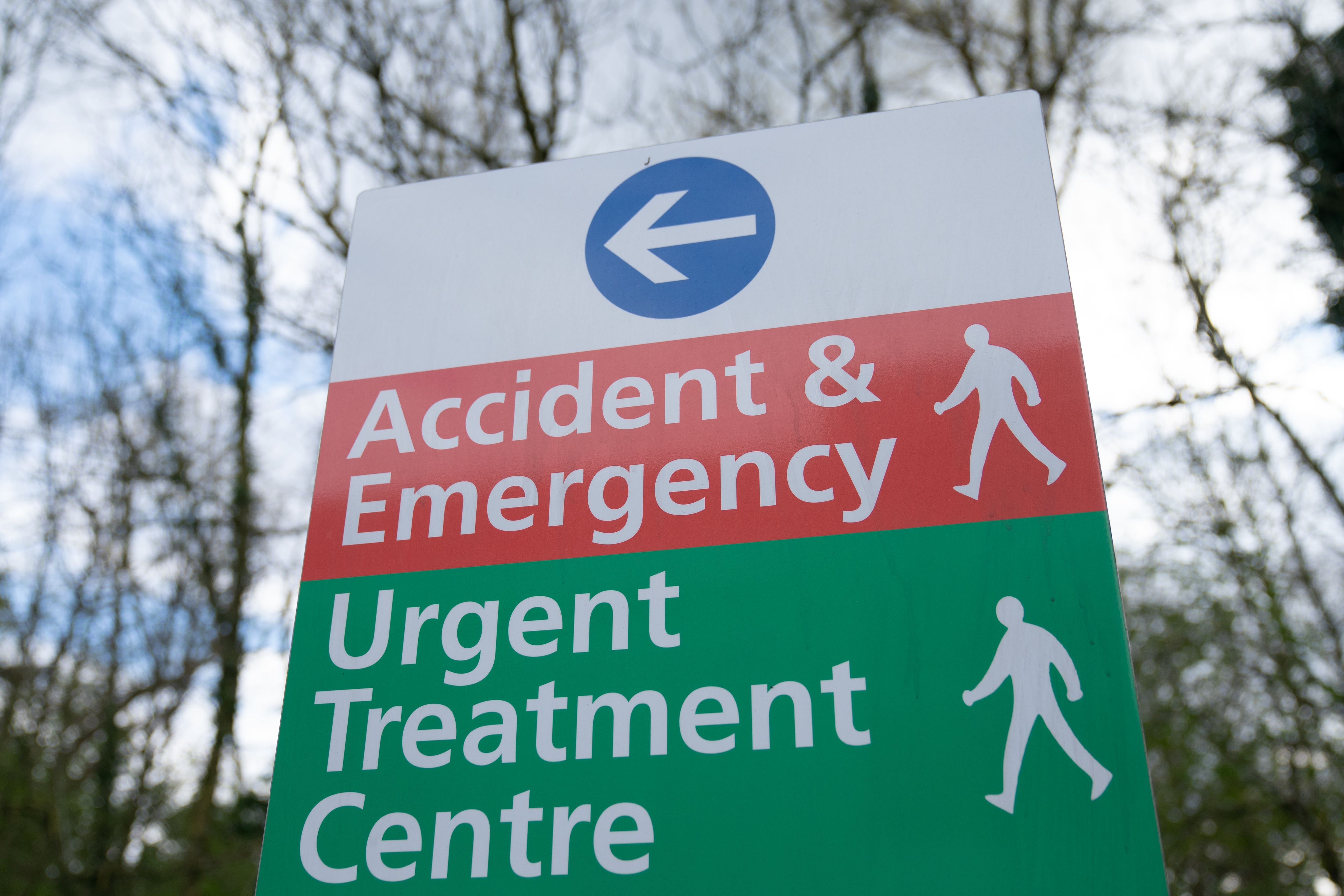‘Hospitals favouring younger emergency patients’
A new study found that elderly people attending Accident & Emergency departments are less likely to be seen within target times.

Your support helps us to tell the story
From reproductive rights to climate change to Big Tech, The Independent is on the ground when the story is developing. Whether it's investigating the financials of Elon Musk's pro-Trump PAC or producing our latest documentary, 'The A Word', which shines a light on the American women fighting for reproductive rights, we know how important it is to parse out the facts from the messaging.
At such a critical moment in US history, we need reporters on the ground. Your donation allows us to keep sending journalists to speak to both sides of the story.
The Independent is trusted by Americans across the entire political spectrum. And unlike many other quality news outlets, we choose not to lock Americans out of our reporting and analysis with paywalls. We believe quality journalism should be available to everyone, paid for by those who can afford it.
Your support makes all the difference.Frail older people are “not being appropriately prioritised” when they attend Accident & Emergency departments, academics have said after a new study found that elderly people are less likely to be seen within target times.
Younger patients with simpler problems are waiting less time for assessments than frail patients with complex care needs, researchers said.
A new study found that people living with frailty and patients with conditions linked to ageing – also known as geriatric syndromes – are less likely to receive an initial assessment within the target time of four hours.
The data from this study shows a concerning trend across the NHS. Hospitals may not be giving equal priority to our frail and older patients and are favouring younger patients with simpler needs who can be assessed and treated more quickly
“Our study demonstrates older people living with frailty may not be appropriately prioritised within the acute care pathway,” the authors wrote in the journal EClinicalMedicine.
Researchers, led by academics at the University of Warwick, examined data from 152 hospitals in the UK relating to 7,248 emergency hospital admissions.
The data was collected as part of a snapshot audit by the Society of Acute Medicine on June 23 2022.
On this day, some 76.4% of patients were assessed within four hours of arriving at hospital.
Lead researcher Daniel Lasserson, professor of acute ambulatory care at the University of Warwick, said: “The data from this study shows a concerning trend across the NHS.
“Hospitals may not be giving equal priority to our frail and older patients and are favouring younger patients with simpler needs who can be assessed and treated more quickly.”
We know that older patients are more likely to experience degrading corridor care, and this data illustrates that, with further delays to important components of their care, this increases the likelihood of adverse outcomes
Commenting on the analysis, Dr Tim Cooksley, immediate past president of the Society for Acute Medicine, said: “This important study is a further illustration of the tremendous strain that the urgent and emergency care (UEC) is under.
“We know that older patients are more likely to experience degrading corridor care, and this data illustrates that, with further delays to important components of their care, this increases the likelihood of adverse outcomes.”
An NHS spokesman said: “While this analysis of a single day in 2022 does not provide a very full picture, it is right to highlight that older patients with complex care needs often require wider assessment and greater support, which can contribute to longer waiting times.
“Same-day emergency care is one of the many ways the NHS is working to provide the right care, in the right place, at the right time for patients – and this model is helping improve patient flow to in fact enable emergency departments to prioritise those with complex needs and who are in need of wider assessment.”